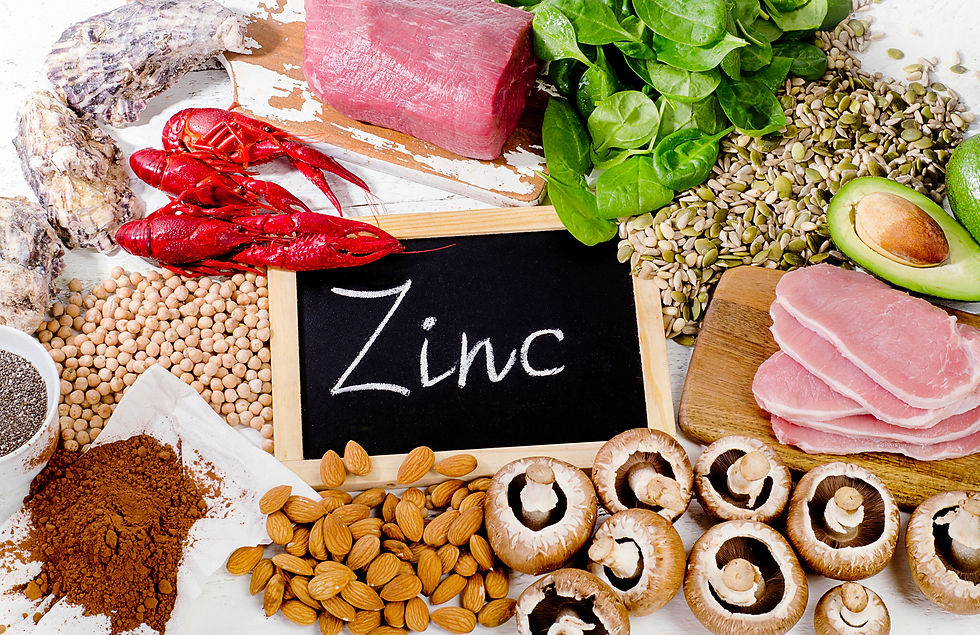Did you know that an alarming 2 billion people throughout the world are deficient in zinc?! Zinc is an essential mineral that can only be absorbed through food or supplementation; therefore, we require a constant supply of it. Every cell, organ and system of the body requires zinc to function optimally. Zinc also plays an essential role in regulating your immune system, which is why it is commonly found in cold and flu supplements.
Signs of Zinc Deficiency:

Loss of taste and/or smell
Frequent colds/flu
White spots on your nails
Excessive hair loss
Poor memory
Chronic infections
Loss of appetite
Diarrhea
Depression
Psoriasis
Dermatitis
Poor night vision
Macular degeneration
Delayed growth in children
Slow healing wounds
Chronic inflammation
Acne
Zinc deficiency is more commonly seen patients with chronic digestive conditions (diarrhea, celiac disease, Crohn’s disease, and ulcerative colitis), chronic liver, kidney and pancreatic disease, diabetes, sickle cell anemia, cancer and alcohol addiction. Elderly patients, patients taking certain medications (such as diuretics), and those eating a vegetarian or vegan diet tend to have lower levels of zinc as well.

Good Sources of Zinc:
Oysters
Crab
Shrimp
Mussels
Red meat
Cashews
Almonds
Peanuts
Pine nuts
Sesame seeds
Hemp seeds
Chickpeas
Lentils
Beans
Cheese
Pumpkin seeds
It is important to know that while nuts, seeds, beans and lentils contain zinc, they also contain phytic acid (naturally found in plant seeds), which blocks the body’s absorption of zinc and other minerals. This is why vegetarians/vegans can still be deficient in zinc even when eating these plant sources. To minimize phytic acid and maximize zinc absorption, it is recommended to eat these foods after they have been sprouted, fermented or soaked first.
Studies have shown that about half of patients with labs demonstrating low levels of alkaline phosphatase (ALP) are deficient in zinc (and magnesium). For a quick check of zinc status, you can take a zinc tally test in our office. We also provide comprehensive lab testing to discover vitamin and mineral needs as well as physician-grade supplements to provide you the best results! Call our office at 321-972-2940 today to schedule your consultation today.

Comments